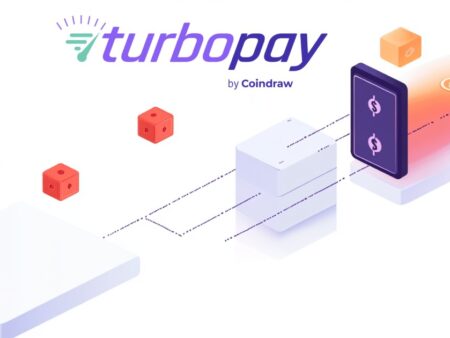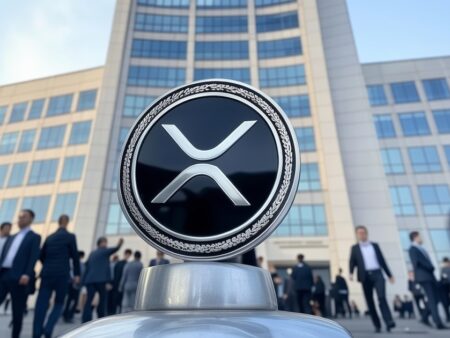Using altcoins for online gambling offers benefits like faster transactions, lower fees, enhanced privacy, and smart contract-enabled fairness. These features can provide a smoother, more secure, and potentially more profitable gambling experience compared to using Bitcoin.
Altcoins, short for “alternative coins,” refer to any cryptocurrency that isn’t Bitcoin. Since Bitcoin’s inception in 2009, thousands of altcoins have emerged, each with its unique features, use cases, or technological improvements over Bitcoin. When it comes to the top altcoins, they can be seen as variations or improvements on the original cryptocurrency, aiming to address Bitcoin’s limitations or offer new functionalities.
The Landscape of Altcoins
The altcoin market is vast and diverse, with cryptocurrencies ranging from those aiming to enhance scalability and privacy to those designed specifically for niche applications like online gambling. Altcoins are categorized based on their function, consensus mechanism, or the technology they employ. Some of the most notable categories include:
- Payment Tokens: Designed for transactions, offering lower fees or faster transaction times than Bitcoin.
- Utility Tokens: Provide access to a blockchain’s service or product.
- Security Tokens: Represent investment in an asset or company, often subject to regulatory compliance.
- Stablecoins: Tied to external assets like the USD to reduce volatility.
Why Altcoins for Gambling?
Online gambling platforms are increasingly adopting cryptocurrencies for their benefits over traditional payment methods, including:
- Anonymity: Many gamblers prefer the privacy that cryptocurrencies offer, as transactions can be made without revealing personal information.
- Speed and Cost: Transactions with altcoins can be faster and cheaper than those with Bitcoin, especially during network congestion times.
- Volatility for Wins: While volatility can be a risk, it also means potential higher returns on wins, especially with lesser-known altcoins.
Top Altcoins for Online Gambling
Ethereum (ETH)
As one of the top altcoins, Ethereum is favored for its smart contract functionality which can be used to create transparent, decentralized gambling platforms. The speed of transactions and the ability to program custom gambling games make Ethereum particularly suited for this sector.
Litecoin (LTC)
Known for its faster transaction times compared to Bitcoin, Litecoin is often considered in gambling contexts where speed is crucial. It’s designed to handle small transactions efficiently, which is beneficial for micro-betting or frequent small bets.
Ripple (XRP)
Although primarily aimed at banking and payment solutions, XRP’s fast and low-cost transactions make it an interesting option for online gambling, especially for international transactions. However, its centralized aspects might not appeal to all crypto gambling enthusiasts.
Stellar (XLM)
Similar to Ripple but with a stronger focus on individual users, Stellar provides a platform for fast, low-cost cross-border payments, making it another contender in the online gambling space.
Tron (TRX)
Specifically, Tron has positioned itself as a platform for content creators, which includes gambling games. With its focus on scalability and high throughput, it’s an appealing choice for decentralized gambling applications.
Benefits Over Bitcoin
Transaction Speed
One of the most significant advantages of top altcoins over Bitcoin in the realm of online gambling is their transaction speed. Bitcoin transactions can take anywhere from 10 minutes to several hours to confirm, depending on network congestion. This delay can be a considerable drawback in the fast-paced environment of online gambling where players expect quick outcomes and payouts. In contrast, many altcoins like Litecoin and Ripple have block times measured in seconds or mere minutes.
For instance, Litecoin, with its 2.5-minute block time, allows for much quicker confirmation of transactions, which means bets can be placed and winnings withdrawn much faster. This speed is crucial in scenarios like live betting or when dealing with time-sensitive gambling events, enhancing user satisfaction and operational efficiency of gambling platforms.
Lower Fees
Bitcoin’s transaction fees can become prohibitively high during periods of network congestion, often making it less than ideal for the small, frequent transactions typical in gambling. These fees are determined by the amount of data in each transaction and the priority users give to their transactions, leading to sometimes unpredictable costs. Altcoins, however, often maintain lower and more predictable fee structures.
For example, Stellar (XLM) and Ripple (XRP) are designed to handle transactions with minimal fees, making them more attractive for both micro-betting and large volumes of small bets. Lower transaction costs not only benefit the players by allowing them to retain more of their winnings but also make it economically viable for casinos to operate high-volume, low-margin games.
Scalability
Bitcoin’s scalability issues have been well-documented, with the network struggling to handle a high volume of transactions without incurring significant delays or fee hikes. This limitation can be particularly problematic for gambling sites where thousands of transactions might occur in a short period. Top altcoins like Cardano (ADA) and Solana (SOL) are addressing these scalability issues with innovative solutions like sharding or proof-of-history mechanisms, respectively.
These technologies aim to increase the transaction throughput of their networks, thus supporting more users and more transactions per second. For gambling platforms, this means they can offer a smoother, uninterrupted service even during peak times, enhancing the gaming experience and potentially attracting more users.
Programmability
Bitcoin’s scripting language is limited, which restricts the complexity of applications that can be built on top of it. In contrast, Ethereum’s introduction of smart contracts has revolutionized blockchain programmability, allowing for the creation of decentralized gambling applications where the rules are enforced by code rather than trust in a central authority. This feature not only enhances security and fairness but also allows for the innovation of new gambling formats directly on the blockchain.
Other altcoins have followed suit, with platforms like Tron (TRX) focusing on high throughput for decentralized applications (dApps), including gambling. This programmability enables developers to craft games with unique mechanics, transparent odds, and automated payouts, which can significantly elevate the trust and engagement levels among users.
Privacy Features
Bitcoin transactions, while pseudo-anonymous, can still be traced back to individuals through sophisticated blockchain analysis. This aspect can deter privacy-conscious gamblers. Many altcoins have built-in privacy features to address this concern. Monero (XMR), for instance, uses ring signatures, stealth addresses, and confidential transactions to obscure the origins, amounts, and destinations of transactions. This level of privacy is particularly appealing for online gambling where users might wish to keep their financial activities confidential.
Altcoins like Zcash also offer selective transparency, giving users the option to make transactions either visible or shielded, providing flexibility based on the user’s privacy needs. This privacy can extend protection to gamblers, making altcoins a preferable choice for those concerned about their online footprint.
Conclusion
While Bitcoin paved the way for cryptocurrency gambling, the diversification brought by top altcoins offers specific advantages tailored to the needs of online gambling platforms. These include faster transaction times, lower costs, enhanced privacy, and the integration of smart contracts for transparent, fair play.
As the crypto gambling sector evolves, these altcoins could become increasingly central, providing both players and platforms with more options and innovative ways to interact in the digital betting space. However, the volatility and regulatory environment surrounding cryptocurrencies should always be considered when engaging in any form of gambling with altcoins.
iGaming enthusiast and writer. I enjoy playing and testing new slots as well as working with many developers in the casino software industry. My new passion includes covering the endless innovation of crypto for iGaming its benefits for both players and casinos.




















